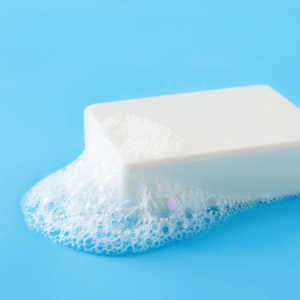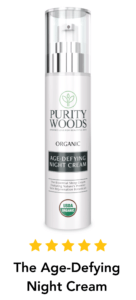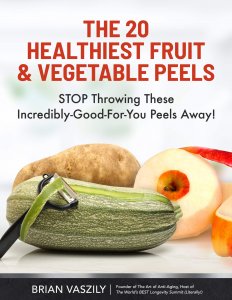 Your skin possesses a natural protective barrier made up of a mixture of lipids and dead skin cells. When functioning optimally, this barrier helps keep moisture locked into your skin – meaning your skin stays hydrated and healthy-looking.
Your skin possesses a natural protective barrier made up of a mixture of lipids and dead skin cells. When functioning optimally, this barrier helps keep moisture locked into your skin – meaning your skin stays hydrated and healthy-looking.
Unfortunately, there are many ways for this natural barrier to become damaged or dysfunctional, resulting in increased water loss and dry skin.
Dry skin is by no means uncommon, and most people will deal with it from time to time. Often, the solution is as simple as using a quality moisturizer regularly to help replenish the lipid barrier or running a humidifier when indoor air is dry.
However, sometimes the culprit behind dry skin is a little harder to pinpoint and may be something completely unexpected!
If you’re dealing with skin dryness that doesn’t want to go away and you can’t seem to figure out a cause, consider some of the more surprising reasons you get dry skin below to see if they might be affecting you.
Unexpected Causes of Dry Skin
Fragrance
Fragrance is one of the most common ingredients in skincare products but also one of the most problematic. Not only are many synthetic fragrance ingredients linked to a number of health concerns, fragrance is also one of the biggest skin irritants and allergens.
For those who are sensitive to fragrance, it can cause reactions like redness, general irritation, and dryness right away (or make existing dryness worse).
Even if you don’t notice a reaction the first time you apply a fragrance product, your skin can build up sensitivity to the fragrance chemicals over time, which can be a contributing factor to dry skin – as well as other skin problems.
When choosing skincare products, one option is to look for those that are naturally scented with plant extracts or essential oils. Many of the most popular extracts and oils, like lavender, have properties that are naturally soothing for skin and benefit most skin types.
You can also opt for products that contain no added scent, even natural ones, especially if your skin is highly sensitive. In this case, be sure products are labeled as “fragrance-free” and double check the label to make sure there are no masking chemicals present. These are sometimes used in so-called unscented products to mask the smell of other chemical ingredients.
It’s also worth considering whether you are exposing your skin to any other sources of synthetic fragrance, such as laundry detergent, dryer sheets, air fresheners, soaps, and so on.
Certain Anti-Aging Ingredients
Many people find that their skin is more prone to dryness as they get older, in part due to the fact that oil production usually starts declining with age.
Other signs of aging often show up simultaneously, making it a prime time to start treating your skin to anti-aging skincare. Unfortunately, many of the most popular ingredients used in a variety of anti-aging products can actually make dryness worse.
Retinol is a prime example of this, with well-known side effects that include redness, dryness, and skin irritation. Popular exfoliating acids, including glycolic acid, can also cause both irritation and dryness, especially for those with sensitive skin. (Acids are often marketed as having a plumping effect for dry skin, but they do this by pulling up moisture from deeper in your skin, which can exacerbate dryness over time.)
In addition, if you aren’t using natural skincare products, certain non-active ingredients, like chemical preservatives, may also have a drying effect on skin.
Of course, ingredients like retinol remain popular because of their effectiveness, which leads people to put up with the unwanted side effects. However, the great news is that a number of emerging natural ingredients have shown promise for effectively combating signs of aging without harsh effects.
Bakuchiol, for example, has even been nicknamed a “natural retinol alternative” after it was shown to diminish the appearance of wrinkles when applied to the face without the same irritation that comes along with retinol products.
The Wrong Soap
 Cleansing is a key part of any good skincare routine because it helps to wash away dirt, toxins, and excess sebum that may clog pores and cause your skin to look dull and lifeless. However, some soaps are too harsh on your skin and strip away healthy, natural oils along with dirt and debris.
Cleansing is a key part of any good skincare routine because it helps to wash away dirt, toxins, and excess sebum that may clog pores and cause your skin to look dull and lifeless. However, some soaps are too harsh on your skin and strip away healthy, natural oils along with dirt and debris.
This type of soap can be another sneaky cause of skin dryness, especially because you may not notice the drying effects on the very first wash. Instead, your skin may compensate at first by producing more oil until it can’t keep up anymore.
Finding the right soap or cleanser can be somewhat of a trial-and-error process, but your best option is to look for a product made with natural ingredients, including some that are moisturizing as well as cleansing. It’s especially important to invest in a quality facial cleanser since the skin on your face is more sensitive and prone to dryness.
Be sure to scan the ingredient list for any new product. Some may be advertised as “moisturizing” but still may contain potentially drying ingredients, particularly fragrance.
The Wrong Water Temperature
Taking a long, hot bath or shower may be relaxing but is not necessarily the best choice for your skin. While the occasional hot bath/shower might not do much harm (especially if you apply a quality moisturizer after), hot water generally has a drying effect on skin.
Interestingly, this doesn’t necessarily mean that cold water is a better choice. That’s because the cold temperature constricts blood vessels, which can in turn reduce sebum production – meaning your skin produces less natural oil.
In this case, go for the happy medium of lukewarm water, especially when washing your face, which is more likely to dry out than the rest of your body.
Hard Water
 The temperature of the water you use to wash your face or body isn’t the only factor that affects your skin. Hard water – aka water that contains high amounts of minerals like magnesium and calcium – can leave an invisible film on skin that may cause dryness and prevent moisturizers from being fully absorbed.
The temperature of the water you use to wash your face or body isn’t the only factor that affects your skin. Hard water – aka water that contains high amounts of minerals like magnesium and calcium – can leave an invisible film on skin that may cause dryness and prevent moisturizers from being fully absorbed.
(For a quick test, fill a bottle partially full with water, add some liquid soap, and shake vigorously. If you see lots of suds and bubbles, your water is most likely on the soft side. If the water is cloudy without many suds or bubbles, your water is probably harder.)
Softening hard water can be complicated and often involves whole-house filtration. However, you can help your skin out more simply by using skincare products rich in vitamin A and vitamin C, which help counteract the film left behind by hard water.
Diet
Your skin receives nourishment in two main ways: from the skincare products you apply externally and from the foods you eat.
It should come as no surprise that your diet can have a big impact on your skin’s health. Certain nutrients—like collagen-boosting vitamin C—are essential for healthy, young-looking skin, while specific foods may do more harm than good.
Everyone will react to foods in an individual way, but overdoing it on caffeine or alcohol can be a quick way to dry out your skin. Foods high in sodium or added sugars can also have a drying effect, and highly processed foods often lack the moisture that your skin craves.
When looking at the bigger picture, a diet low in fat has the potential to contribute to skin dryness because your skin relies on the lipids (fats) found in the top layer to lock in moisture. Omega-3s are a specific type of healthy fat that may particularly be helpful for easing dry skin when consumed regularly.
Over Exfoliation
Generally speaking, exfoliation is beneficial for all skin types and doesn’t necessarily cause dryness. In fact, it can help to get rid of dead skin cells that have accumulated on your skin and may be blocking pores from producing oil.
However, though some exfoliation is good, more is definitely not always better. This is especially true if your skin tends to be dry or sensitive because over-exfoliating can quickly cause irritation and moisture loss, leading to dryness.
As a general rule, exfoliating a few times a week is a good amount for normal skin types. Those who are starting out with dry skin may want to drop down to only once a week or even less. You may have to experiment a little to find out how much exfoliation keeps your skin looking fresh without drying it out.
Also, look for natural exfoliators that are gentle and free of harsh chemicals.
Lack of Sleep
Not getting enough sleep at night can affect your health in many ways, but you might not necessarily connect it with dry skin.
However, some research has indicated that consistently poor sleep quality may negatively impact skin barrier function, opening your skin up to dryness and irritation. Interestingly, lack of sleep or poor quality sleep may also accelerate aging—a “double whammy” for your skin!
The bottom line: Make sleep a priority and work on developing a sleep routine to help you fall asleep. Also, use a high-quality moisturizer before going to sleep to take advantage of this deeply rejuvenating period.
Harsh Cleaning Products
 It’s not just the products you apply directly to your skin that could be causing dryness.
It’s not just the products you apply directly to your skin that could be causing dryness.
Many conventional cleaning products contain harsh ingredients—like bleach, for example—that are very hard on your skin. Regular contact with them can disrupt your skin barrier, potentially causing irritation and dry skin. This is especially true if you don’t wear gloves or other protective gear while cleaning.
Considering the fact that many cleaning products are sprayed from a bottle, there’s even potential for them to affect parts of your skin (i.e., your face) that don’t come into direct contact with the product.
Ideally, look for natural cleaning products that don’t contain some of the harsher ingredients and use the more powerful ones sparingly.
Certain Medications
Medications often come with unwanted side effects and could be the surprising culprit behind your dry skin.
A few of the more common medications that may cause dryness include blood pressure and cholesterol medications (including diuretics and statins) and antihistamines. Chemotherapy is another treatment that can cause skin and mouth dryness.
This is not an exhaustive list, so it’s well worth checking the side effects of any prescription or over-the-counter medications you may be taking to see if they could be contributing to dry skin.
Certain Health Conditions
Skin conditions like eczema, psoriasis, and rosacea often go hand in hand with dry skin. If you deal with any of these, you’re much more likely to experience dryness, but there are some other underlying health conditions that may be a factor as well.
For example, dry skin can be a symptom of a thyroid disorder, particularly hypothyroidism. Diabetes can diminish your skin’s ability to produce oil, leading to dryness, and kidney disease can also lead to decreased skin hydration.
Malnutrition can also cause dry skin, and though it isn’t common in the U.S. in its full-blown form, nutrient deficiencies or insufficiencies—particularly of skin-helping nutrients like vitamin D or vitamin A—are worth watching for.
Turn Back the Clock On Dry Skin
 No matter the cause of your dry skin, a quality moisturizer is key to keeping your skin nourished and hydrated. Nighttime might just be the best time of day to use it to allow your skin to soak up all the nourishment undisturbed during the naturally rejuvenating period of sleep.
No matter the cause of your dry skin, a quality moisturizer is key to keeping your skin nourished and hydrated. Nighttime might just be the best time of day to use it to allow your skin to soak up all the nourishment undisturbed during the naturally rejuvenating period of sleep.
If you want to lock in moisture overnight and effectively diminish the appearance of signs of aging like wrinkles, fine lines, and dark spots, look into the outstanding Age-Defying Night Cream from Purity Woods.
(Click above to see the special today — up to 37% off, free U.S. shipping & free reusable makeup remover pads ($28 value) as a gift with your order!)
This do-it-all rejuvenator is USDA Certified Organic and packed full of 20+ botanical extracts that nourish and moisturize skin while also possessing anti-aging properties. This includes ingredients like organic mango butter – packed full of vitamin C and vitamin A – elastin-boosting organic maple leaf extract, and revitalizing organic rosehip seed oil. NO synthetic ingredients, GMOs, or toxin worries.
Find out more about the Age-Defying Night Cream right here — see today’s special of up to 37% off, free U.S. shipping, and a free reusable makeup pad remover gift — and don’t forget to check your daily habits for potential dry skin culprits!



Thank you Brian. Fabulous article and your super product.
Great article! Thank you!
Thank you for your inputs Brian.
appreciate the valuable information you share so generously.Simply adore your Bad Dad jokes. Really brings a smile on my face! Thank you ! Gb
Interesting and informative article.
Wei researched data of information for non medical personnel.
Brian,
Do you know what really causes dry skin???
TOWELS!!!😂
Just couldn’t resist!
A interesting article. Helped me understand dry skin.
Brain thank you so much, I am very grateful to receive such valuable information really appreciate your sharing with me everything including your Honesty+time .
Thank you for the nuanced explanations of each cause, and for skipping the hyperbole and soap-boxing! This was actually helpful, and peasant to read.
Thank you, Brian. Your articles are always helpful and backed with sound explanations. I love your “bad Dad jokes” too. 😃
Loads of great information. I also always look forward to the dad jokes. Thank you. Dan
So much helpful information in this article! Thank you so much for sharing this and making it manageable for us to understand and deal with. Also do love your dad jokes!
Clarity — and smiles — are so important! Thank you for your kind words.
Yes, I have always avoided phthalates. In my early
days of studying Egyptology, I learned that they used phthalates to preserve dead bodies. So I was not happy when holidaying in S. of France and was overwhelmed by the phthalate laden peuer to breathe freely.
Ruth F.